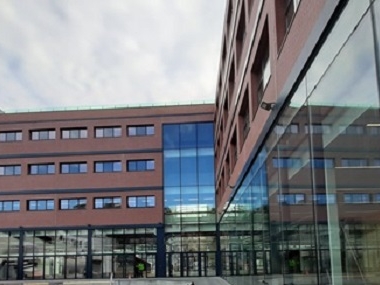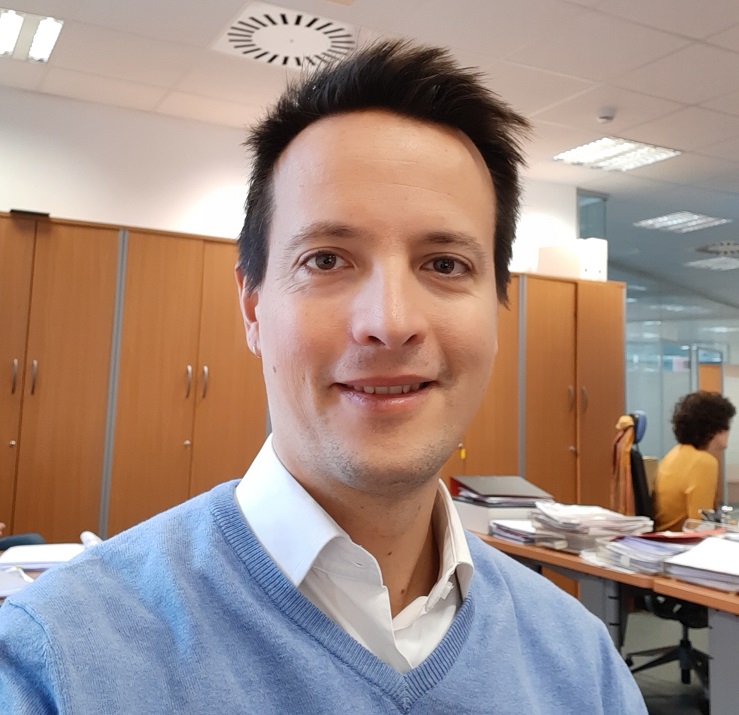"Boosting the competitiveness of manufacturing industries: what other cities can learn from Bilbao" by Willem van Winden -URBACT Lead Expert-
Edited on
29 September 2021Manufacturing industries are still the beating heart of many European industrial city regions. But global competition is tough, and traditional business practices are under fire, challenged by digitalization. How can cities best deal with the challenges of the quite disruptive “Industry 4.0” era? Bilbao provides a good example: In its AS-FABRIK project, it developed a comprehensive concept that offers new training schemes, partnership&alliance formation, actions to speed up digitalization, and boosting innovative startups. Now, other cities with an industrial heritage want to learn how Bilbao did it: Bielsko Biala, Tartu and Timisoara joined Bilbao in the AS-TRANSFER exchange project.

Bilbao’s industrial transformation is a well-known story
Bilbao’s economic transformation has left deep traces in the city. Since the 1970s, manufacturing industries started to decline. Until then, Bilbao’s riverside was dominated by large companies in the heavy industries and shipbuilding. But due to the economic crisis, they had difficulties to compete on the global market, and a gradual but painful decline set in. Factories were abandoned, large strips of land along the Nervion river became vacant. Over the decades that followed, the city of Bilbao faced the dual challenge of transforming urban spaces no longer used for production, and developing a new, more promising economic future based on knowledge and innovation. The contemporary visitor may not realise that the banks of the Nervion river, now filled with strolling locals and tourists, with a lively mix of offices, housing and leisure, were once the domain of large manufacturing plants and shipyards. The development of the Guggenheim Museum –and the area around it- became the visible landmark of the cities’ regeneration. The transformation does not imply, however, that Bilbao had ceased to be part of an industrial region. The city’s surroundings are home to many manufacturing firms, large and small, that compete on world markets; Manufacturing still represents a rather stable 24% of the regional economy (Basque Country), and many service activity has evolved around it. And still, there are many industrial sites –although no more in the city centre- where production takes place.
New challenges….Industry 4.0, digitalization, servitization, advanced services
But the industrial landscape is changing again very rapidly, this time due to digitalisation and servitization (the growing service component in manufacturing). Clients are more demanding, new competitors enter the market; New technologies such as artificial intelligence, sensors and big data, asks for changes in all aspects of the business model. Hence, manufacturing firms and service firms face strong pressures to stay ahead of the game, they need new skills and competences that they do not have in-house typically. In particular, “manufacturing 4.0” opens new avenues for connections between manufacturing firms and knowledge intensive business services (KIBS). The latter include IT and software firms, consultancies, marketing firms, but also financial service providers. Their knowledge and expertise is very valuable for manufacturing firms, that face the challenge to develop just-in-time systems, offer new types of service and maintenance contracts, organize their workflows more efficiently. New market niches open up for start-up companies that develop digital technologies and solutions.
A coordinated effort
A key insight, shared by stakeholders in the region, was that this set of challenges cannot be solved by companies alone, but requires a coordinated effort from city, education institutes, manufacturing firms and the advanced services sector. From this conviction, partners came together, developed a plan, and successfully applied for EU funding. Their project was baptised AS-FABRIK: a conjunction of advanced services (AS), and manufacturing (Fabrik).
Training programmes, partnership development, start-up boosting and more.
The stakeholders deployed a number of activities to realize their ambitions. Mondragon University designed a range of new training programmes, not only for regular students but also for entrepreneurs, professionals and even city staff to get them familiar with the new technologies and trends in this fields. The latter part is quite innovative and important, because, as the project leader put it, “if the policy makers do not know what is going on in the industry, how can we expect them to make good policies”. But even for advanced professionals in the industry, it can be hard to keep pace with the latest development. For them, the project organized interactive workshops to get acquainted with the latest trends, find good partners, and collaborate effectively in the design of new products. They were not left on their own: through a mentoring programme, collaborating firms received support from qualified experts. Also, entrepreneurial teams in Bilbao were encouraged to create new businesses in the field of industry 4.0. The typical “Silicon-Valley” way of startup formation was replaced by a more gradual model, digging up business ideas in existing companies and bringing them to fruition.
…the story continues without EU funding
EU funding made it possible to develop and run AS-FABRIK and carry out all these activities. in 2020, the funding came to an end, but the project carried on in a municipally owned building led by Mondragon University, which is part of the larger Mondragon co-operative that also includes many (industrial) companies. They now exploit the AS-FABRIK concept, and their lead ensures that at least the educational activities will continue. At the same time, the more innovative aspects of AS-FABRIK, especially the partnership brokering and the startup boosting, is more fragile. Such activities take up much time and resources from the side of the organiser and the participants, it is never easy to engage companies, especially when the orderbooks are full. So even though Bilbao’s AS-FABRIK is a good practice, it is not without challenges.
…sharing the lessons with other cities
Other European cities can surely learn from the experience of Bilbao. To share the lessons, three cities joined Bilbao in the AS-TRANSFER project: Bielsko Biala (Poland), Tartu (Estonia) and Timisoara (Romania). Just like Bilbao, these cities also have a long and strong industrial tradition, and realise that digitalization and advanced services are playing a key role in the future of their industries. In the next year, the four cities will meet, exchange their challenges and practices, learn from Bilbao’s experience, and develop plans to improve their local ecosystems.
 Submitted by Ekain Laka on
Submitted by Ekain Laka on
